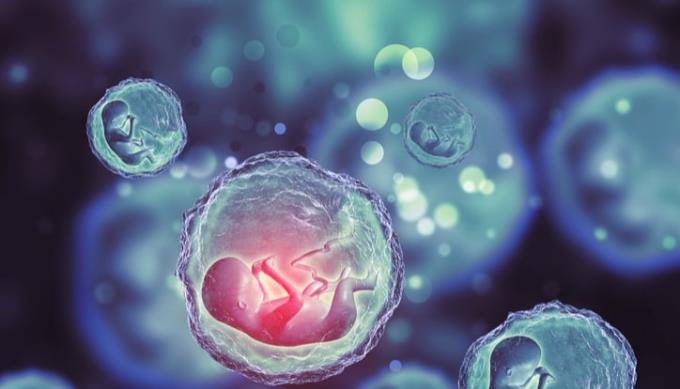The young couples are very miserable on the way to find children. If infertility does not know the cause, the sadness will multiply.
Currently, about a quarter of couples face difficulties in giving birth and cannot find the reason why they cannot have children. To understand more about this unexplained infertility , please read the following shares of aFamilyToday Health .
Unexplained infertility is what?
Inexplicable infertility has been a controversial topic. Normally, after being married for a year, a husband and wife do not use any contraception but still have no children, at this time, it can be considered that the couple is difficult to have children. During infertility, your doctor will usually give you and your husband tests or exams to find the cause. However, in some cases the cause cannot be explained. The reproductive organs of husband and wife are healthy if:
Ovulation regularly
Your ovarian reserve (the number and quality of oocysts remaining in your ovaries) in good condition (assessed by a blood test or secondary follicle)
Your fallopian tubes are open and healthy
Analysis of the husband's sperm revealed normal (including sperm count, semen and sperm shape)
No serious uterine problems (endoscopic evaluation).
Endoscopy is also required in some cases to rule out endometriosis. This condition cannot be diagnosed through blood tests or ultrasound.
Inexplicable infertility and spontaneous infertility in men and women
Inexplicable infertility is not spontaneous infertility in both sexes. Idiopathy is also unexplained, but when the doctor talks about non-spontaneous infertility, the man is infertile. The results of this person's semen analysis are not normal. Why are the semen analysis abnormal? That may not be known. If the cause cannot be determined, the doctor may prescribe idiopathic infertility. Spontaneous female infertility can occur when a woman doesn't ovulate regularly or normally, but it's not clear why this happens.
In both cases, one can tell why the couple was unable to conceive: the wife did not ovulate or the husband's semen was not within the range that could ovulate. As for the case of unexplained infertility, ovulation and good spermatozoa, but this couple is still not pregnant.

The cause of infertility cannot be explained
Although experts are constantly improving their knowledge in the field of reproduction, there are still many mysteries that cannot be fully explored. Here are some reasons for inexplicable infertility:
1. Health problems
How poor health affects a person's ability to conceive in common or under-paid ways. For example, radically untreated Celiac disease may be behind a number of patients with unexplained infertility. Different studies have found that women with Celiac disease will experience the condition 2-6 times more than others.
Other potential symptoms that can cause infertility include diabetes, an undiagnosed thyroid disorder, and some autoimmune diseases.
2. Mild endometriosis
Severe endometriosis has the potential to cause remarkable fertility problems that can be realized without the need for endoscopy. For example, the endometriosis cysts interfere with ovulation or block the fallopian tubes.
Mild endometriosis may not affect ovulation or egg mobility and may not have obvious symptoms.
3. Interaction between the vaginal environment and sperm
After ejaculating, sperm must come out of the semen into cervical mucus. They then swim from the vagina, into the cervical chamber and finally into the uterus. Occasionally, problems can develop during the time between sperm transitions between parts. For example, a lot of antibodies in the cervical mucus or even semen will attack sperm. This is called hostile cervical mucus. Diagnosing this problem is not easy, leading to unexplained infertility.
4. Low quality eggs
Usually, women have to undergo tests to find the relationship between the quantity and quality of ovulation regularly or in good condition while in the ovary. Poor egg quality can be caused by age, underlying health or some unknown cause. In addition, egg quality is diagnosed during IVF (in vitro fertilization) treatment.
5. Low sperm quality
Several types of poor sperm are quite widely known. For example, poor sperm shape (also called morphology) can cause fertility problems. The ability to move weak is also a cause of infertility. These conditions can be diagnosed with semen analysis. There may be other problems with sperm quality that may not be apparent during the test.
Sperm, for example, may possess poorer quality DNA. DNA problems increase as men mature. That is why the children of older fathers are at risk for reproductive disorders and neurological problems.
6. Problems when a fertilized egg develops into an embryo
Even though you and your partner are in good health, and both eggs and sperm are in a steady state that can fertilize and develop into a fetus, this development can go wrong at any stage. That makes it difficult to have children.












